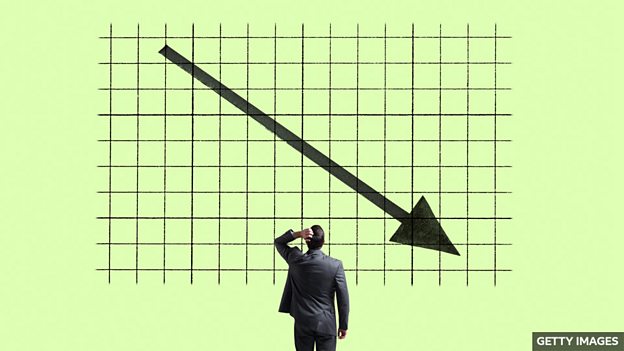内容简介
一位网友想知道 “deteriorate” 和 “aggravate” 之间是否有区别。这两个词的意思都和 “事情变得更糟糕” 有关,但它们的用法不同。“Deteriorate” 作不及物动词使用,表示 “恶化,变坏”,但无需说明导致 “恶化” 的原因;“aggravate” 只能作及物动词使用,强调 “加剧,使(原本存在的问题变得)更严重”,它还有 “激怒” 的意思。本期节目讲解这对近义词在用法上的区别。
欢迎你加入并和我们一起讨论英语学习的方方面面。请通过微博 “BBC英语教学” 或邮件与我们取得联系。我们的邮箱地址是 questions.chinaelt@bbc.co.uk
文字稿
(关于台词的备注: 请注意这不是广播节目的逐字稿件。本文稿可能没有体现录制、编辑过程中对节目做出的改变。)
Phil
Hello and welcome to Question and Answer of the Week. I'm Phil.
Jiaying
And I'm Jiaying. 本期 “你问我答” 节目的问题来自一位网友。问题如下:
Question
Hello, what's the difference between 'aggravate' and 'deteriorate'? How do we use each of them?
Phil
OK, that's a really good question! These are two verbs that we often use to talk about situations which are getting worse.
Jiaying
在表示 “情况变坏” 时,“aggravate” 和 “deteriorate” 的主要区别就在于动词的主语是人还是物。请大家牢记这一点。
Phil
OK, Let's look at 'deteriorate' first. The meaning is quite straightforward – it just means 'to get worse'.
Jiaying
是的,“deteriorate” 常被用来指 “(健康、经济或组织的财务状况、标准、建筑物或基础设施等事物)恶化、变坏”。
Phil
An important thing about the way we use this word, is that it focuses on the process of something getting worse.
Jiaying
要注意:“deteriorate” 主要强调 “事物变坏的过程”。与这一点相关的是,“deteriorate” 常作不及物动词使用,后面没有直接宾语。我们把 “变坏或恶化的事物” 作为句子的主语,“deteriorate” 则是谓语动词。
Phil
Yes, so, if we use it in this way, we don't have to say what is causing the subject to get worse – sometimes we don't know, sometimes it's not important, and sometimes it's just not our main focus.
Jiaying
没错,你说的这点很重要:在使用不及物动词 “deteriorate” 的时候,通常不在句子中具体说明导致情况恶化的原因,这可能是原因未知、不重要或不是我们想要表达的重点。听三个例句,想一想句子中要重点说明什么。
Examples
The company's finances have been deteriorating for the last few years.
(过去几年,这家公司的财务状况一直在恶化。)
It's so sad to see how her health has deteriorated recently.
(看到她的健康状况最近越来越差,真让人难过。)
These buildings are just deteriorating – they desperately need to be renovated.
(这些建筑物受损,急需翻新。)
Jiaying
在上面的三个例句中,主语所指的事物都在 “deteriorate(恶化)”,分别是:“the company's finances(这家公司的财务状况)”、“her health(她的健康状况)”、“the buildings(建筑物的状况)”,但都没有说明导致状况恶化的原因。
Phil
It is possible to use 'deteriorate' transitively – and here we use the cause of the decay as the subject of the verb and the thing that gets worse as the object. Do note that this way of using 'deteriorate' is probably less common.
Examples
Excessive heat could deteriorate the paintwork.
(过热会使油漆变质。)
Damp can deteriorate the structure.
(潮湿可能会使建筑物受损。)
Jiaying
注意到了吗?“Deteriorate” 作及物动词时,主语经常是导致宾语 “恶化” 的环境因素。
Phil
Right, so we've had a good look at what 'deteriorate' means and how we use it. Now, let's have a look at 'aggravate' – which can also be about things getting worse. There are two main meanings, and in the one that we're going to look at first, 'aggravate' means 'to make a bad situation worse'.
Jiaying
问题中的第二个词 “aggravate” 是及物动词,后面总是接直接宾语,意思是 “加剧,加重”。
Phil
So, straight away, that's one big difference with the most common way of using 'deteriorate', and it means that we're focusing directly on what's making things worse.
Jiaying
前面我们讲到,在使用动词 “deteriorate” 的时候,不需要说是何人或何物导致了事物 “恶化”,但在使用 “aggravate” 的时候则必须说明原因。
两词的另一个区别是:动词 “aggravate” 在表示 “加剧” 时,后面跟的宾语必须是一个原本已经很糟糕的问题或情况。
Phil
Yes, that's important to remember. When we use it this way, we can only aggravate a problem or a bad situation. Anything can deteriorate.
Jiaying
是的。听两个例句,想一想每句话中原本存在的问题是什么,导致其恶化的原因是何人或何物。
Examples
The long dry summer aggravated the drought.
(漫长而干燥的夏季加剧了旱情。)
No one was happy before, but what you said just aggravated the situation.
(之前大家就都对此不满,但你说的话让情况变得更糟了。)
Jiaying
两个例句中原本已经存在的问题是 “drought(干旱)” 和 “no one was happy (大家都不满意)”。动词 “aggravate” 着重强调 “加剧(原本就不好的情况)”,所以 “the long dry summer aggravated the drought(漫长而干燥的夏季加剧了旱情)”;另外,“what you said just aggravated the situation(你说的话让情况变得更糟了)”。
Phil
There is another related meaning of 'aggravate' – 'to annoy' or 'to irritate'.
Jiaying
是的,动词 “aggravate” 还能用来表示 “激怒,使(人)恼火”,同样及物,而后面接的宾语通常是被惹恼的人。
Phil
We can also be aggravated by things or situations. Listen to these examples:
Examples
Don't aggravate your brother – you know he doesn't like it!
(别惹你弟弟,你知道他不喜欢这样!)
This itch is really aggravating me – I want it to stop.
(我这里痒得难受,我想快点止痒。)
Jiaying
在第一个例句中,“aggravate” 强调 “惹人生气”。在第二个例句中,“aggravate” 强调 “(身上发痒这种情况)使人心烦意乱”。
Phil
So, getting back to our question, we can see that while they are related, there are some key differences between 'deteriorate' and 'aggravate'. It's more common to use 'deteriorate' as an intransitive verb, without an object.
Jiaying
在谈论事情 “越变越糟” 时,用 “deteriorate” 表示 “(无好坏之分的事物或情况)恶化、变坏”,它更常用作不及物动词;用 “aggravate” 表示 “加剧(原本存在的问题)”,它是及物动词。
好了,谢谢这位网友的提问。希望我们的讲解帮助你加深了对这两个近义词的理解。
如果你在英语学习中也遇到了问题,欢迎通过微博向我们提问。我们的微博账号是 “BBC英语教学”。你也可以发邮件给我们,邮箱地址是:questions.chinaelt@bbc.co.uk 谢谢收听 “你问我答” 节目。Bye, everyone!
Phil
Bye!

